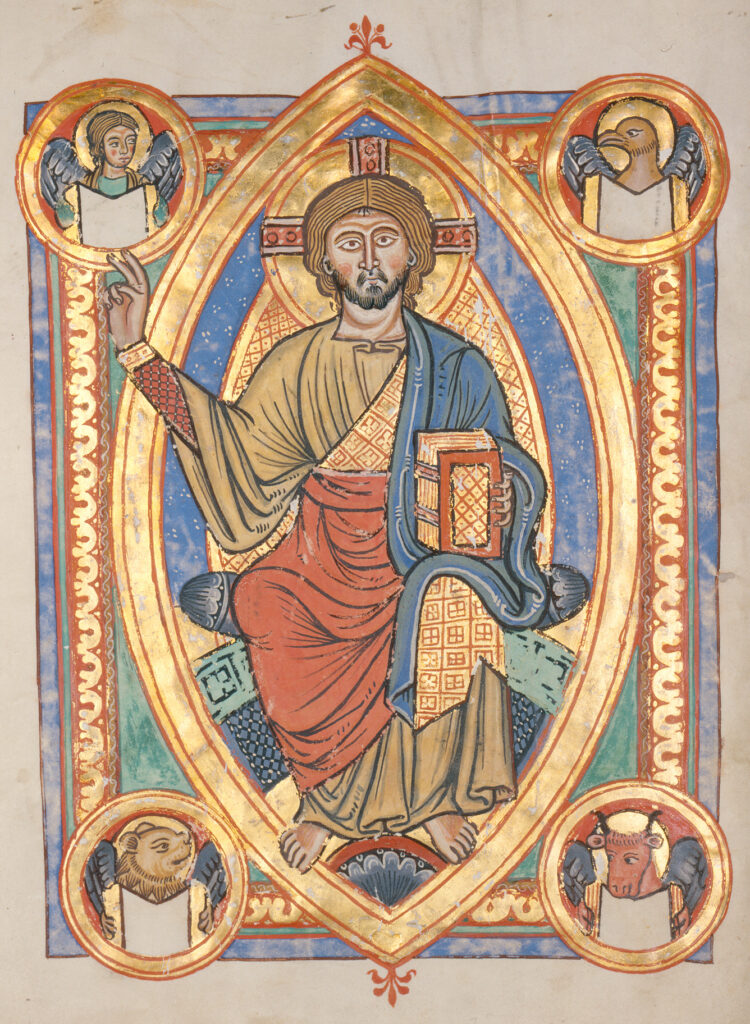God Doesn’t Make Garbage
Scripture Readings

Today’s gospel is not at all as simple as it may seem. At first, it may appear as a series of loosely connected saying. Yet, in fact, it tells us a great deal about Jesus’s attitude toward our motives. What we see here in the gospel is far different from what we see out in the world—even our so-called Christian world. There’s a lot in here, so bear with me.
Motivation immediately calls to mind reward and punishment—the carrot and the stick. To the world, reward and punishment are the primary motivators. In psychological terms, it’s called the pleasure principle, the instinctive drive to seek pleasure and avoid pain. It’s used everywhere in advertising: if you do this, you’ll get that, or, if you don’t do this, that will happen to you. The reason it’s everywhere is that it works. But it works on the simplest and most basic level of moral development: instinct. Even an infant responds to rewards and punishments.
Now, do you think that a motivational approach that works for an infant is appropriate for an adult? And yet, religious instruction from prehistoric times has relied on it to influence believers’ behavior. If you do the right things as prescribed by your religion, the gods will reward you and your people. You’ll get what you want and there will be rain, the crops will be abundant, and the herds will flourish. If you neglect your duties, or do what your religion forbids, the gods will become angry and bad things will happen to you and your people. That may be an obsolete viewpoint, but don’t think you haven’t been affected by it. Haven’t you ever asked God or the universe, “What did I do to deserve this?” Of course, you have. We all have.
So, what about heaven and hell? Doesn’t our God reward goodness and punish sin? Isn’t that what we were taught? Don’t people still believe, “If you do such-and-such, you won’t go to heaven, or, even worse, you’ll go to hell? Isn’t that in the Bible? …Actually, it isn’t, but well talk about that in a minute.
Strangely enough, the reward and punishment paradigm has no place in an adult spirituality. The basic problem with it is that, once people get beyond the toddler stage, the pleasure principle isn’t effective—although the success of advertising shows we’re still vulnerable to it. As we mature, we begin to realize that rewards don’t deliver what they promise. Once we attain them, we see them as the temporary tawdry counterfeits for happiness that they most often are. Punishments don’t fare any better. Instead of being the motivators to improve our wayward behaviors they’re intended to be, no matter how justifiable they may seem, they simply generate anger, resentment, and retaliation. Many destructive choices are made out of spite.
For Jesus and the gospel, motivation comes from a much different source. Let’s turn to today’s gospel, starting with this passage, “Anyone who gives you a cup of water to drink because you belong to Christ, amen, I say to you, will surely not lose his reward.” There’s that word again: reward. For Jesus and his followers, what is the reward for performing even the tiniest act of kindness out of love? Isn’t it the experience of love itself? Don’t we say that virtue is its own reward? The Reign of God that we pray for whenever we recite the Lord’s Prayer is not in some future heaven. The Reign of God comes when God’s will is done on earth. The reward promised for loving is the serenity and sense of connectedness it brings. It’s the “peace which the world cannot give” that Jesus offered us. It’s being fully alive. It motivates us because we know that we could never be satisfied with anything less.
Now, see how Jesus himself models this love for us. In the gospel, when John the Apostle comes to Jesus complaining about the stranger curing illnesses in Jesus’s name without permission, what do you suppose John wanted Jesus to do? He wanted the man punished. What was Jesus’s response, though? He told John to leave the man alone. Jesus showed tolerance. Tolerance is not my favorite word. I think it implies putting up with something or someone distasteful. But Jesus was teaching a deeper kind of tolerance. He was teaching his disciples what to do when people say or do things we disagree with. He. Did. Nothing. Anything else would be intolerant. William Barclay, in his commentary on Saint Marks’ gospel wrote this, “Intolerance is a sign both of arrogance and ignorance, for it is a sign that someone believes that there is no truth beyond the truth they see.”
It’s not Jesus’s job—nor ours—to correct people. Instead, he asked his followers to look at what these words and actions produced. “By their fruits you shall know them.” The world is self-correcting because words and deeds have consequences. Our job is to make sure that the only consequence of our words and deeds is love.
Now, what about hell? I promised earlier that I’d talk about it. “Hell” is the English translation of two New Testament words. The first is the Greek word, hades (άδης), the abode of the dead, the underworld. In Hebrew, the term is sheol (שאול), which means essentially the same thing. The abode of the dead was not a particularly pleasant place—cold, dark, and damp—but it wasn’t a punishment. For Jews and Greeks alike, everyone went there when they died.
The second term we find translated as “hell” is Gehenna. In fact, we find it three times in today’s gospel. The word was derived from the Hebrew Ge-Hinnom (גי־הנם), the Valley of [the son of] Hinnom. It’s the valley beneath the temple mount in Jerusalem. In ancient times, the spot was used for child sacrifice, burning them alive. The practice was so abhorrent that King Josiah declared the whole valley to be unclean and ordered the garbage of the city to be burned there. Gehenna, therefore, was a trash heap, a garbage dump, the city incinerator. It both stunk and burned day and night. What does it mean, then, to be “thrown into Gehenna?” It means this: if you allow yourself to descend into hateful depravity, you will trash your life.
Now, what about those things that “cause you to sin”—what we used to call “near occasions of sin”—your hand, your foot, your eye? We’re certainly not expected to mutilate ourselves, are we? Obviously not. But to understand what Jesus is really saying, once again, we have to fix our translation of the gospel text. It does not say “If your hand causes you to sin cut it off.” The term they translate “cause you to sin” is one of those fussy Greek words again. This time, it’s skandalizein (σκανδαλιζειν), meaning ‘to cause to stumble,’ or ‘to create difficulties.’ Jesus is actually saying, “Get rid of the stuff in your life that’s causing you problems.”
I’ll give you a perfect example of how the lessons from today’s gospel work in real life. Over the past thirty-five years, I’ve listened to the stories of hundreds of alcoholics, and they’ve all said the same thing: they believed that alcohol was as necessary for the functioning of their lives as their hand or foot or eye. One day, they woke up to the fact that their lives were in the trash bin—in Gehenna. Those who recovered were willing to consider that alcohol might just be the stumbling block, and, with the help of God, they became willing to remove it—to cut it off. When they did that, their lives got better. They found the serenity and connections they’d been missing. It was not about reward or punishment or sin. They were not being punished for their drinking, nor were they rewarded for stopping. They just discovered that their lives that had been disasters had become amazing.
So, what about you? What’s your stumbling block? Don’t do anything just so you can go to heaven, and don’t do anything just so you won’t go to hell. Instead, get rid of whatever keeps you from handling your life and the lives of those around you with the loving care these precious gifts deserve. There, you’ll find your peace. There, you’ll find the Reign of God. There, you’ll find heaven.
